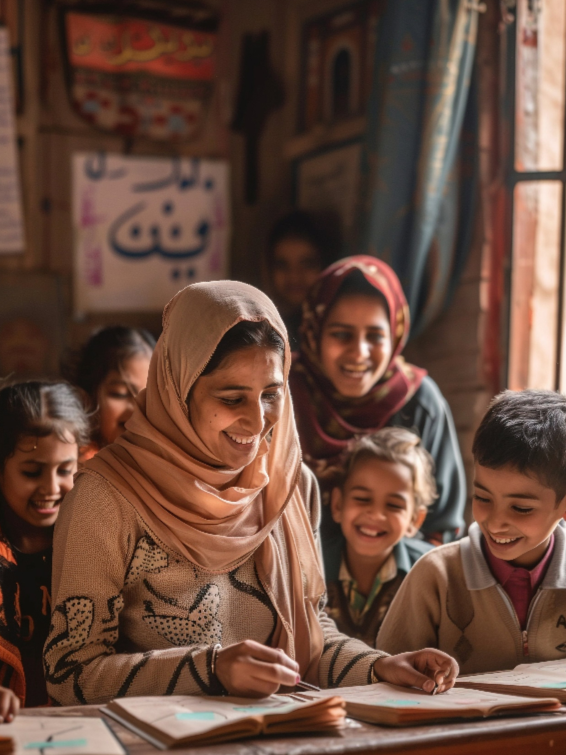Impact of a reading intervention on Syrian refugee families in Jordan
This project targets Syrian refugee families with young children in Jordan, where displacement, overcrowded living conditions, and limited resources heighten the risk of toxic stress—a biological response to prolonged adversity. This stress can negatively affect children’s development, making it essential for parents to engage in stimulating activities that help children build the skills needed for school. To address this, we partnered with the "We Love Reading" program in Jordan, which promotes parent-child interactions through read-aloud sessions. Families receive colorful, age-appropriate books in Arabic, which is important since many do not own children’s books, and reading aloud is not a common habit.
Families in the project were randomly divided into three groups: one received the reading intervention, another received books but no training, and the third group received no books or intervention. We collected data at three points to assess the impact, using a mixed-method approach. By including physiological data, the research explores how family stress processes can affect the success of early interventions. The results aim to guide social policies that support the development and well-being of refugee children, helping to reduce the long-term effects of displacement.
Collaborators:
Professor Rana Dajani, Hashemite University, Jordan, and Founder and Director of We Love Reading
Partners:
NGO Taghyeer Jordan
Publications from the project:
Suchodoletz, A. v., Dimova, A., Ali, R., Qtaishat, L., & Dajani, R. (2025). Profiles of child mental health problems during the COVID-19 pandemic in Jordan and associations with mothers’ psychosocial functioning. Gulf Education and Social Policy Review. In press.
